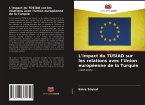The achievement of European Economic and Monetary Union (EMU) at the end of the twentieth century was exceptional in that it introduced a new monetary regime that provided a single currency for much of Europe. The European Union (EU) member states that have adopted the euro to date represent more than two-thirds of the total EU population, and the extension of the euro area to other EU member states is expected to take place in due course. The transfer of monetary policy to the EU level has required substantial changes to the European framework for central banking. The creation of a new supranational monetary organization, the European Central Bank (ECB), and the integration of national central banks (NCBs) into a European System of Central Banks (ESCB) and its subset, the Eurosystem, illustrate the move to supranational central banking in Europe.








